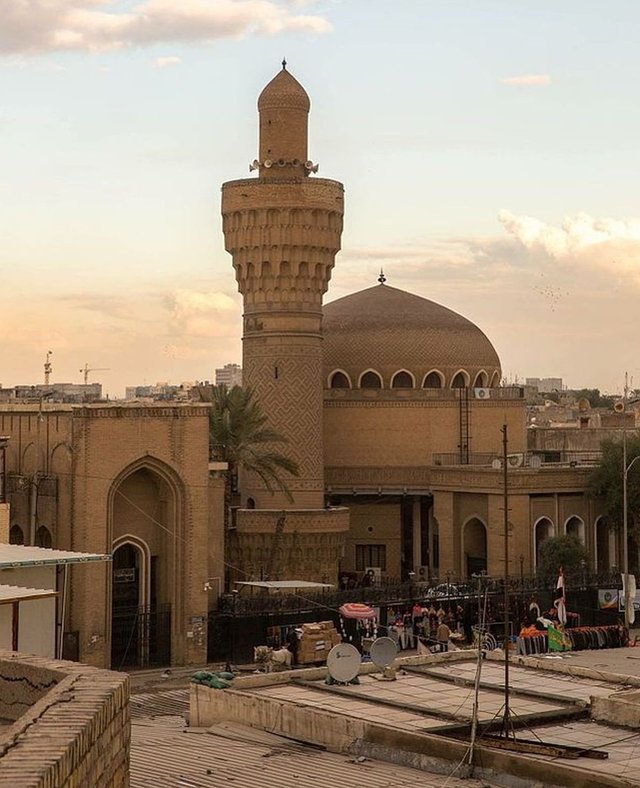Ending the Islamic Golden Age / İslami Altın Çağın Bitişi [Today in History: February 13 / Tarihte Bugün: 13 Şubat ]
Baghdad, then a city of 1 million, falls to the Mongols as the Abbasid Caliphate is destroyed, tens of thousands slaughtered, ending the Islamic Golden Age.
O zamanlar 1 milyonluk bir şehir olan Bağdat, Abbasi Halifeliği yıkılırken, on binlerce kişi katledilirken Moğolların eline düşer ve İslami Altın Çağı sona erer.

*The minaret of the Al Khalufa mosque in Baghdad, showcasing the minaret from the Abbasid era of the city
Photographer: Aziz1005Location: Baghdad, Iraq
Baghdad, now the second-largest city in the Arab world, was founded in the 8th century by Abbasid caliph Al-Mansur and eventually became the capital of the Abbasid caliphate. Baghdad in this era was a hub of learning and commerce, particularly during a period known as the Islamic Golden Age.
Şu an Arap dünyasının ikinci büyük şehri olan Bağdat, 8.yüzyılda Abbasi halifesi El-Mansur tarafından kuruldu ve Abbasi halifeliğinin başkenti oldu. İslamın Altın Çağı olarak bilinen bir dönemde Bağdat, bir öğrenme ve ticaret merkeziydi.
From shortly after its founding until the 930s, it is likely that Baghdad was one of the largest cities in the world. This period of expansion and of Baghdad as a hub of Islamic learning was ended when the Mongol Empire conquered the city in 1258, and destroyed the Abbasid caliphate. This also ended the Islamic Golden Age.
Kuruluşundan kısa bir süre sonra 930'lara kadar Bağdat'ın dünyanın en büyük şehirlerinden biriydi muhtemelen. Bu genişleme dönemi ve Bağdat'ın İslami öğrenmenin merkezi olması Moğol İmparatorluğu 1258'de şehri fethettiğinde ve Abbasi halifeliğini yok ettiğinde sona erdi. Aynı zamanda İslami Altın Çağ sona erdi.
About February 13, 1258
Day of the Week: Saturday
How Long Ago? 762 years, 11 months and 27 days